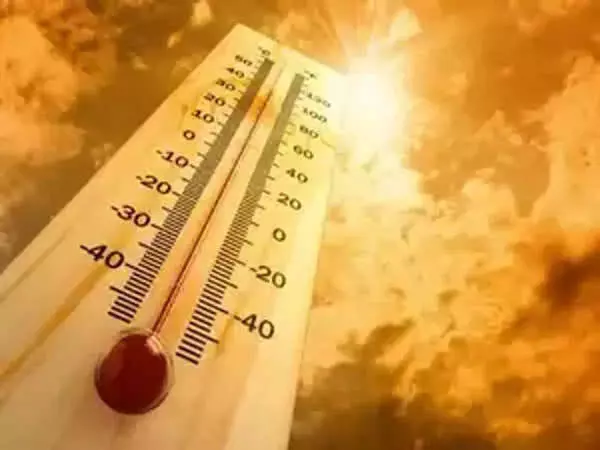
IMD chief says India to get own index to quantify impact of heat next year
text_fieldsNew Delhi: The India Meteorological Department (IMD) has announced that India will introduce its own composite index next year to measure the effects of heat on its population and produce impact-based heat wave advisories for certain places. Last week, the IMD started issuing an experimental heat index for various regions of the nation that accounts for air temperature and relative humidity to gauge how hot it actually feels.
"The heat index is an experimental product. It is not validated and we have mentioned that (on the IMD's website) too. We are coming up with our own system now, a multi-parameter product called 'heat hazard score'. We hope that it will be better than the others," Mrutyunjay Mohapatra, Director General of Meteorology, IMD, told PTI.
Along with temperature and humidity, it will integrate other parameters such as wind and duration. It will be an effective indicator of heat stress for people, he said.
The IMD chief said the hazard score will be ready in around two months and "it will be operational in the next summer season".
Asked if the IMD has incorporated health data into the product, he said the weather bureau will gradually do it.
"We have been working on it but health data is not readily available in some places," he added.
Mohapatra and his team conducted a heat wave hazard analysis for the entire country last year, taking into account the maximum temperature, minimum temperature, humidity, wind and duration of heat waves.
The analysis will help generate heat hazard scores which will be utilised as thresholds to issue impact-based heatwave alerts for specific locations.
According to IMD data, there was a 24 percent increase in the number of heat waves during 2010-2019 compared to 2000-2009. However, there is a decreasing trend after 2015.
Between 2000 and 2019, the mortality rate for tropical cyclones decreased by 94 per cent, whereas it increased by 62.2 per cent for heat waves.
The Fifth Assessment Report of the Intergovernmental Panel on Climate Change said the major climate risk for South Asian countries will be the rising mortality rate due to heat waves.
A moderate increase in average temperatures or a slight increase in the duration of heat waves will lead to a significant increase in the mortality rate in India, unless remedial and response measures are taken, it said
However, heat waves are yet to be notified as a natural disaster at the national level in the country.
Heat waves have an immense impact on human health, causing cramps, exhaustion, stress and heat stroke and very severe heat waves even lead to death. Children and the elderly are particularly affected also people who suffer from heart and respiratory problems, kidney diseases and psychiatric disorders.
Extreme periods of high temperatures can lead to a significant reduction in crop yields and cause reproductive failure in many crops.
With PTI inputs





